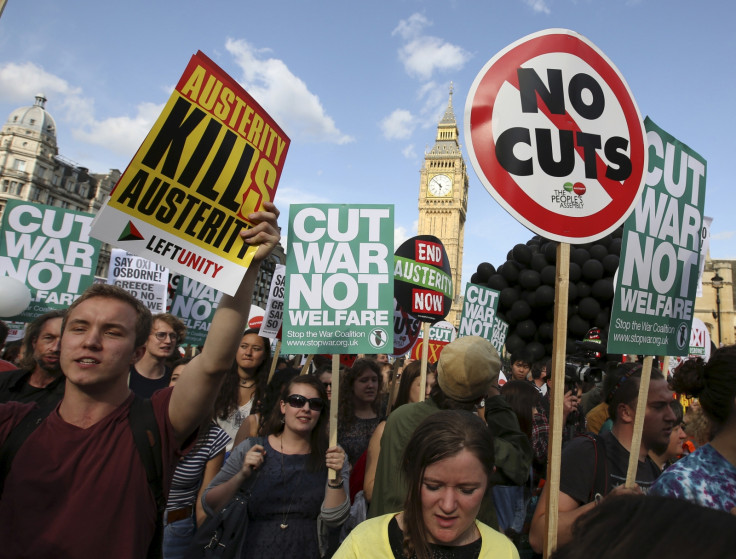UK's £12bn welfare bill passes parliament despite Labour revolt

The government's controversial welfare bill that will see a spending cut of £12bn in welfare was passed in parliament with 308 votes to 124 on its second reading, despite a fifth of Labour MPs going against the whip and voting against the legislation.
The bill was also opposed by the Scottish National Party (SNP), the Liberal Democrats, Plaid Cymru and the Greens.
The Welfare Reform and Work Bill seeks to cut tax credits, reduces the welfare cap and introduces a national living wage.
A total of 48 MPs defied Labour's interim leader Harriet Harman's call to her party lawmakers to abstain from voting, raising questions about the deep divisions with the party which faced a heavy defeat in the last general election.
The Labour party is facing a leadership battle, slotted to take place later this year after former leader Ed Miliban resigned following the party's dismal performance at the elections. The four candidates are Andy Burnham, Jeremy Corbyn, Yvette Cooper and Liz Kendall.
Conservative MP and chief secretary to the Treasury, Greg Hands noted that this was the biggest Labour rebellion for some time, saying that the party was facing a "leadership crisis without actually having a leader!"
Those who rebelled against Harman's directive, included Labour leadership candidate Corbyn and London mayoral candidates Sadiq Khan, David Lammy and Diane Abbott, reports the Independent.
No member of Labour's shadow cabinet voted against the bill, said the Independent.
Just voted against Tory Welfare bill. It will force thousands of children into poverty pic.twitter.com/fdiITyON2R
— Diane Abbott (@HackneyAbbott) July 20, 2015
In her tweet, Abbott said: "Just voted against Tory welfare bill. Sorry for colleagues who knew it was wrong but abstained. We weren't sent to Parliament to abstain."
Harman had faced strong criticism within her party for her stance on the issue, with many Labour MPs saying that she should have been more outspoken in her opposition to the proposals to changes to child tax credits and cuts to other in-work benefits.
The bill seeks to lower the overall household benefit cap from £26,000 a year to £20,000 and £23,000 in London and to train a further three million apprentices, the BBC says.
Following its second reading, it will now move onto more detailed scrutiny, the broadcaster added.
Labour, led by backbender Helen Goodman, put in a hardline rival amendment to the bill in an attempt to derail it but that was defeated 308 votes to 208.
She described the Tory bill as "obnoxious" and "regressive," according to Sky News.
Labour MP John McDonnell said: "Poverty in my constituency is not a lifestyle choice, it is imposed upon people."
In presenting the bill, Work and Pensions Secretary Iain Duncan Smith said the bill would put welfare funding on a "more sustainable footing" while protecting those most in need."
"It's clear that Labour are still the same old anti-worker party – just offering more welfare, more borrowing and more taxes."
He said: "In 1980, working-age welfare accounted for 8% of all public spending but by 2010 it had risen to nearly 13% cent. That's more than £2bn, almost £8,000 for every household," he said.
© Copyright IBTimes 2025. All rights reserved.






















